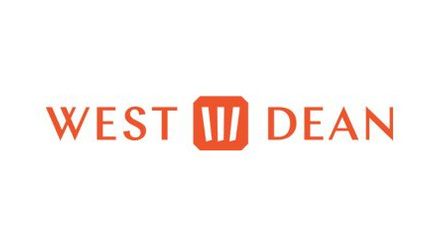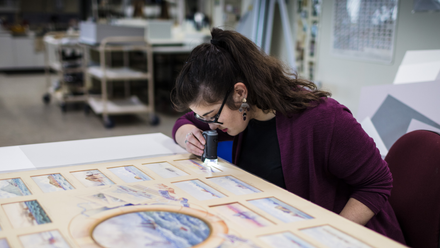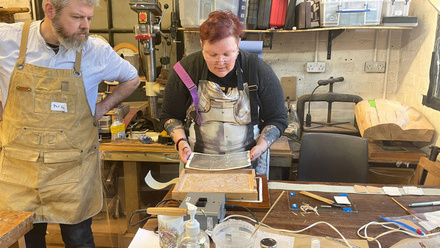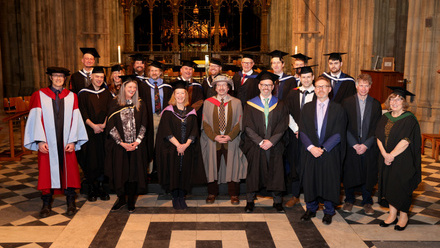Icon publishes new Skills Strategy
Icon is committed to supporting the continued development of skills within the conservation profession. The purpose of the new strategy is to guide our work and enable us to focus our time and resources on the most pressing issues impacting the sector. It builds on our established commitment to Icon Accreditation, the development of sustainable entry routes into the conservation profession and the support for continuing professional development opportunities for conservators throughout their careers.
The new Skills Strategy builds our 2022 Labour Market Intelligence research and was developed in consultation with Icon members, education providers and other key stakeholders across the heritage sector.
Key aims
Through our consultation exercises, we identified three key aims, which must be considered through all skills development activities to be effective. These are:
- Ensuring that skill supply activities are sustainable and meet the needs of employers, clients and commissioners.
- Recognising the need to stimulate demand for conservation skills, to ensure that clients and commissioners engage fully trained professionals where appropriate.
- Prioritising accessibility in all stages of training and development so that everyone can achieve a rewarding career in conservation.
Priorities for action
This work has led to the development of six priorities for action, which we believe need to be addressed to ensure that there is a resilient, vibrant and thriving training offer, supporting a dynamic conservation workforce.
- Understand the core skills required by professional conservator restorers and the level of competence expected.
- Support and develop training to support conservation activity wherever it is taking place and whoever is doing the work.
- Ensure that skills training has the breadth and depth to support the range of material knowledge needed in the sector.
- Continue to increase the number of Icon Accreditation across the UK and internationally.
- Support a diverse range of entry routes into the conservation profession.
- Support higher education institutions to deliver sustainable conservation training programmes.
To discuss any aspects of this strategy, or to feed into Icon’s skills development activities, please contact Patrick Whife, Head of Policy & Skills.






